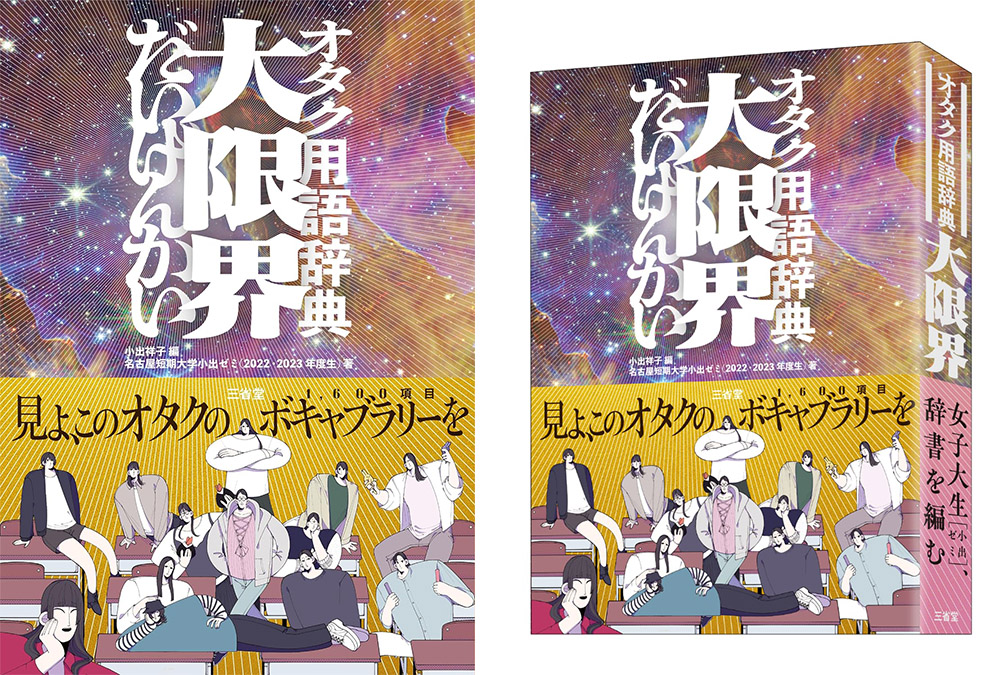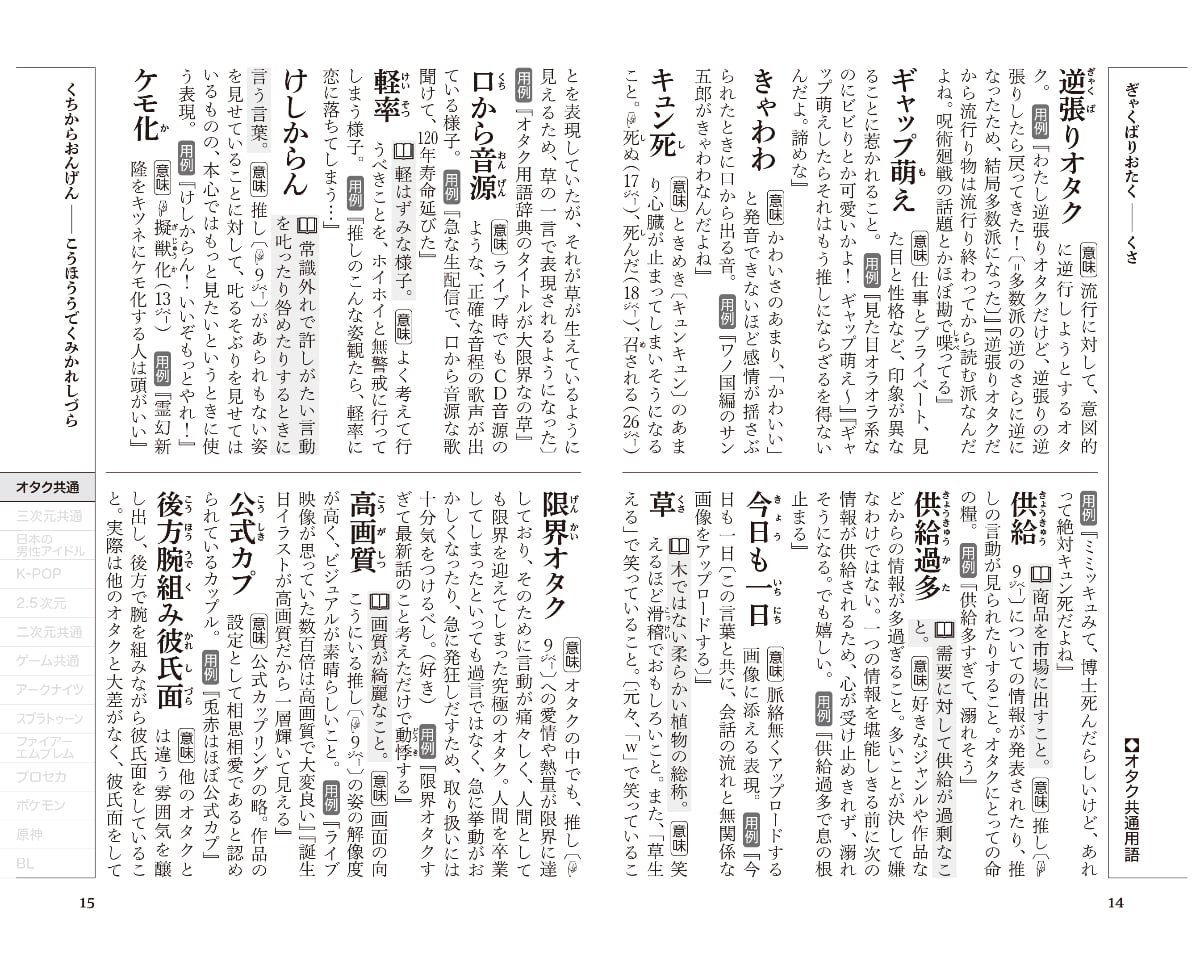Sanseido, a major Japanese publisher of textbooks and dictionaries, announced the release of Daigenkai – a comprehensive dictionary of otaku and geek terminology. News of the dictionary, covering topics such as “common otaku terminology,” K-pop stan terminology, yaoi, Pokémon terminology and similar, has been causing mixed reactions among the Japanese public.

The otaku dictionary, created through a project initiated by Japanese university students, contains approximately 1600 words across 14 different chapters, covering various topics related to otaku and geek culture, stanning and various fandoms. The title of the dictionary itself, Daigenkai, seems to be a play on words, involving the title of a historically important Japanese dictionary (also read as “Daigenkai” but spelled differently) and the slang term “genkai otaku,” (ITmedia) that refers to otaku whose cringe behavior exceeds the limit.
In today’s Japan, otaku individuals and otaku culture are becoming more and more of a common thing, and terms related to otaku, such as “oshi-katsu” (stanning) can be seen showing up in regular media increasingly. However, as with all niche cultures, as you go deeper into the community, the terminology that surrounds it becomes increasingly specific, with a lot of terms being completely obscure to the average person, or even another otaku belonging to a different fandom.

This could be part of the reason why a group of 12 Japanese college students decided to create a dictionary that collects and defines such words, that can otherwise only be known to very marginal groups. Since the announcement, news of the dictionary has been met with mixed reactions. Based on samples given of the contents of the dictionary, a lot of otaku have been, while finding the whole idea kind of comical, praising the in-depth curation and authenticity of the definitions and usages. Some have pointed out that, given how quickly such terminology changes and gets replaced, the dictionary will come to serve as an important testament to the times in a few years, becoming almost like a relic.
On the other hand, there have inevitably been voices of dissatisfaction, mostly coming from otaku belonging to the fandoms included in the dictionary, regarding misinterpretations and the use of specific character names in examples, especially with terms related to pairings. Things like unofficial pairings can cause very divided opinions among passionate fans, so having certain pairings mentioned in the dictionary seems to have caused unhappy reactions.
Fandom and geek terminology and slang are known for how quickly they evolve and become obsolete. For a lot of words, even primary users have trouble agreeing on their correct definitions. In this sense, creating a dictionary of otaku terminology is a rather ambitious and challenging task. In particular, when corporations try to meddle with “what’s popular with the youngers,” the results can be quite disastrous, so in this sense, the Daigenkai, which Sanseido describes as containing “interpretations analyzed by otaku themselves,” seems to have done a comparatively good job.
The Daigenkai dictionary is planned to go on sale on November 21.





